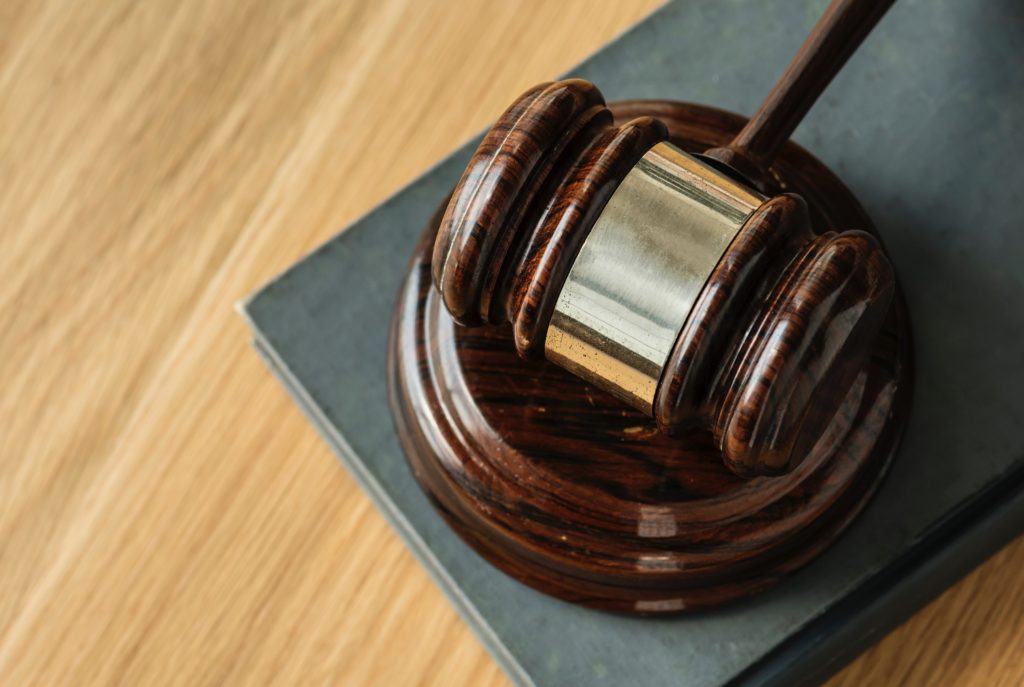Fighting Racism in Jury Selection
Bobby Joe Pinkney, an African-American man, went on trial for his life in the rural town of Raymond, Mississippi in July 1985. He was charged with the murder of a white woman. The all-white jury convicted Mr. Pinkney and sentenced him to death.

As it happened, I was sitting for the bar examination in Jackson that month, just 20 miles from the Raymond courthouse. Two years later, I went to the Mississippi State Penitentiary to introduce myself to Mr. Pinkney as the lawyer for his appeal. I’d studied the transcript and it was clear to me that the prosecutor had used racist tactics to convict him.
During trial, the D. A. had used 10 so-called “peremptory challenges” to keep Black potential jurors out of the jury box, while Mr. Pinkney’s own lawyers sat silent. After the testimony of the second witness, Mr. Pinkney himself stood up to protest the all-white jury. The judge told him to sit down.
After the jury convicted Mr. Pinkney, but before sentencing, the defense lawyers submitted a deposition and a newspaper interview in which the District Attorney said his ideal juror was “a 45-year old white male with a crewcut and white socks who welds for a living,” and said his approach to Black jurors was “Get rid of as many as you can.” But the sentencing went on. After only an hour of deliberating, the jury sentenced Mr. Pinkney to death.
That was my first death penalty appeal. Although Mr. Pinkney’s death sentence was later vacated, the appeals courts did not address the D. A.’s racist jury selection tactics – even though the Supreme Court had decided in Batson v. Kentucky that a prosecutor’s peremptory strikes could be challenged in an individual case if there was a clear pattern of excluding people of color from the jury.
Today, more than 30 years later, not much has changed. Trial judges almost never hold prosecutors accountable for racially based jury selection practices, and appeals courts are reluctant to overturn trial judges on jury discrimination issues.
Given those odds – and given the likelihood of prosecutorial retaliation – many defense lawyers hesitate to object to racially-biased peremptory challenges. Back in 2013, my MacArthur colleague Emily Washington and I learned firsthand what defense lawyers face in Caddo Parish, Louisiana. We filed a motion in one of our cases there to prevent the infamous prosecutor Dale Cox from using his jury strikes against Black citizens. He responded by threatening us with criminal charges. Is it any wonder that, over 10 years, Caddo Parish defense lawyers objected to less than 5% of the D.A’s peremptory challenges against Black citizens?
This evil isn’t limited to courts in the South. In January of this year, our appellate director David Shapiro joined Emily Washington and me in filing an amicus curiae brief (we were joined by the ACLU) in the Supreme Court in support of Floyd Smith, a California prisoner who had been convicted and sentenced to death by an all-white jury for the killing of a white woman in San Bernardino County. The prosecutors blocked all four Black potential jurors from the panel.
It’s true that justice sometimes prevails. Witness Curtis Flowers’ victory in the Supreme Court last week: after two separate appeals of his sixth trial for capital murder, the Court concluded that the D. A.’s record of striking 41 out of the 42 eligible Black prospective jurors, and his one-sided questioning of those jurors to hide his tracks, proved race discrimination in jury selection. We were proud that our clients, the Magnolia Bar Association, the Mississippi Center for Justice, and Innocence Project New Orleans, stepped up to file an amicus curiae brief urging the Court to take the case. But for every case like Mr. Flowers’s, there are hundreds of others in which Black citizens are shut out of the jury room by blatant. unconstitutional racial discrimination. We need a new plan of attack against this racist practice.
Building on the work of the Equal Justice Institute in Alabama, which challenged this issue in civil court, Emily Washington and I filed Pipkins v. Cox – a civil rights lawsuit on behalf of citizens who are excluded or threatened with exclusion from jury service by prosecutors. By filing in Federal court, we won’t have the same State court judge who works with the prosecutors every day evaluating the motives behind the jury strikes. Moreover, this attack focuses on the rights lost to Black citizens, rather than on the criminal prosecution. And it has teeth: a judgment that the DA’s office uses racist tactics and an award of damages.
After almost four years of litigation, a U.S. District Judge has green-lighted part of the case. We begin discovery this fall on behalf of four Black citizens who were eliminated from criminal juries by Dale Cox’s assistants and who are seeking damages from the D. A.’s office. We hope others will adopt this strategy and use civil litigation as a tool for citizens and communities to hold racist prosecutors responsible for their actions.
We have a long way to go. But we won’t rest until the 14th Amendment’s unequivocal prohibition of intentional racial discrimination – is enforced as the law of the land, and Black citizens have full access to the jury box.
